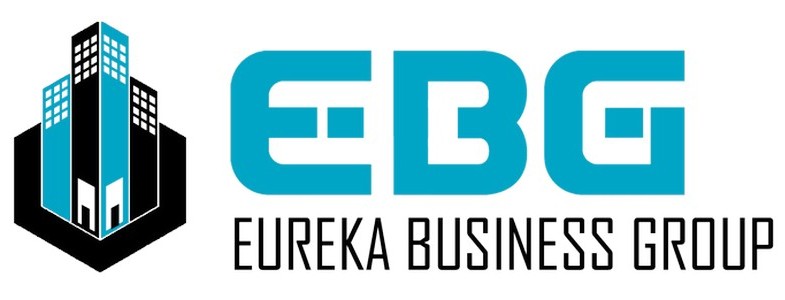- Home
- Retail
- Retail Investors Resources
- How to Leverage Financing for Retail Commercial Property Investments!
How to Leverage Financing for Retail Commercial Property Investments!
Investing in retail commercial properties can be a lucrative opportunity, especially in a market like Dallas, where consumer spending and real estate values continue to grow. However, retail property investments often come with a hefty price tag. This is where financing plays a crucial role in making these investments possible. By leveraging financing, investors can access more significant capital, increase their return on investment (ROI), and scale their property portfolios more effectively. But to do so successfully, it’s essential to understand the various financing options available and the strategies that can optimize the investment process.
1. Understanding the Importance of Financing in Retail Property Investment
Leverage is a powerful tool in real estate investing. It allows you to control a much larger property with a smaller amount of personal capital. By borrowing money, you can use other people’s funds to generate higher returns. Retail properties, especially in thriving locations, have the potential for long-term cash flow through rental income, capital appreciation, and increased equity.
The challenge, however, lies in how to secure financing and use it wisely. Retail property investments usually require substantial upfront costs, including the property purchase price, closing costs, and any necessary improvements. Without the right financing, many potential investors would be unable to enter the market or scale their portfolios. Hence, understanding different financing options and how to leverage them is key to achieving success in retail real estate.
2. Types of Financing for Retail Commercial Properties
There are several types of financing options available for retail commercial property investments. Each type has its advantages and disadvantages, depending on your financial situation, creditworthiness, and investment goals.
Conventional Bank Loans
Conventional loans are the most common and traditional financing option for retail property investments. These loans typically come from banks or credit unions, and they require good credit, a solid business plan, and significant cash reserves. Lenders will generally finance 70-80% of the property’s purchase price, meaning the borrower will need to contribute the remaining 20-30% as a down payment.
Pros:
- Lower interest rates than other loan options.
- Predictable repayment schedules.
Cons:
- Strict lending criteria.
- Significant down payments required.
Small Business Administration (SBA) Loans
SBA loans are a government-backed option designed to help small businesses acquire real estate. The most common SBA loan for real estate investments is the 7(a) loan, which can be used for purchasing retail properties. The SBA guarantees a portion of the loan, which reduces the risk for lenders and allows borrowers to access better terms.
Pros:
- Low down payment requirements (as low as 10%).
- Longer loan terms, which can reduce monthly payments.
Cons:
- Borrower must occupy the property for at least 51% of the time.
- SBA loans have stricter approval processes and can take time to process.
Commercial Mortgage-Backed Securities (CMBS) Loans
CMBS loans are a type of financing secured by a commercial property. These loans are packaged into securities and sold to investors in the secondary market. CMBS loans offer competitive interest rates and long repayment terms, but they also come with higher fees and the requirement for significant property equity.
Pros:
- Long-term financing with competitive interest rates.
- No prepayment penalties.
Cons:
- More difficult to qualify for compared to conventional loans.
- High upfront costs and fees.
Private Lender and Hard Money Loans
If you have trouble qualifying for traditional bank loans or need fast financing, you may consider private lenders or hard money loans. These loans are usually provided by private individuals or firms and are secured by the real estate property itself. Hard money lenders tend to be more lenient with credit requirements, and loans can be processed much faster than traditional loans.
Pros:
- Easier to qualify for, especially for investors with poor credit or little financial history.
- Fast approval and funding.
Cons:
- Higher interest rates.
- Shorter repayment periods.
Equity Financing
Equity financing involves raising capital by selling shares in your property investment. In this case, you partner with investors who provide funding in exchange for a percentage of the equity. This is an ideal strategy for investors who may not have the credit or cash on hand to secure loans but still want to take advantage of retail property opportunities.
Pros:
- No debt to repay.
- Partners share in both the risks and rewards.
Cons:
- You give up a portion of your ownership and profits.
- Potential for disagreements with investors on management decisions.
3. Strategies for Leveraging Financing
Once you’ve decided on a financing option, it’s important to employ effective strategies to maximize the benefits of leveraging financing in retail commercial property investments.
Maximize Leverage, Minimize Risk
One of the main benefits of leveraging financing is that you can control a larger property with less of your own capital. However, using too much leverage can increase your risk if the property doesn’t generate enough income to cover the loan payments. A good rule of thumb is to ensure that the property’s rental income exceeds the loan payments, operating expenses, and other costs. This balance helps you minimize the risk of negative cash flow and ensures that your investment remains profitable.
Refinance to Unlock Equity
As the value of your retail property appreciates over time, you may have the option to refinance the loan to unlock additional equity. This can provide you with more funds to invest in additional properties, improve existing properties, or reinvest in other areas of your portfolio. Refinancing is a great way to keep growing your investment without needing to secure new financing or come up with additional capital.
Consider Joint Ventures
Joint ventures (JVs) are another way to leverage financing while sharing the risks and rewards of a retail property investment. If you’re unable to finance a project on your own, partnering with a trusted investor or group of investors can provide the necessary capital. In a JV, one party may provide the financing while the other handles the property management or operational side, making it a mutually beneficial arrangement.
Use 1031 Exchange to Defer Taxes
A 1031 exchange allows investors to defer capital gains taxes when selling one retail property and purchasing another of like kind. By leveraging the proceeds from the sale into a new investment, you can increase your portfolio size without being immediately taxed on the gains. This strategy is particularly useful for investors looking to grow their portfolios over time by deferring taxes and leveraging financing.
Focus on Cash Flow and Appreciation
When leveraging financing, it’s essential to focus on properties that provide both strong cash flow and potential for appreciation. Retail properties located in high-traffic, desirable areas often have the best potential for both. Cash flow from rent payments provides steady income, while appreciation can increase the overall value of the property, providing long-term financial rewards.
4. Conclusion
Retail commercial property investments can be an excellent way to build wealth and generate long-term cash flow, but they require strategic planning and careful use of financing. By understanding the various financing options available, such as conventional loans, SBA loans, and private financing, and by employing strategies to maximize leverage and minimize risk, investors can scale their portfolios and achieve significant returns.
If you’re ready to take the leap into retail property investments, the key is to conduct thorough research, secure the right financing, and develop a solid strategy. With the right approach, you can leverage financing to create a profitable retail property investment portfolio that thrives in any market.



